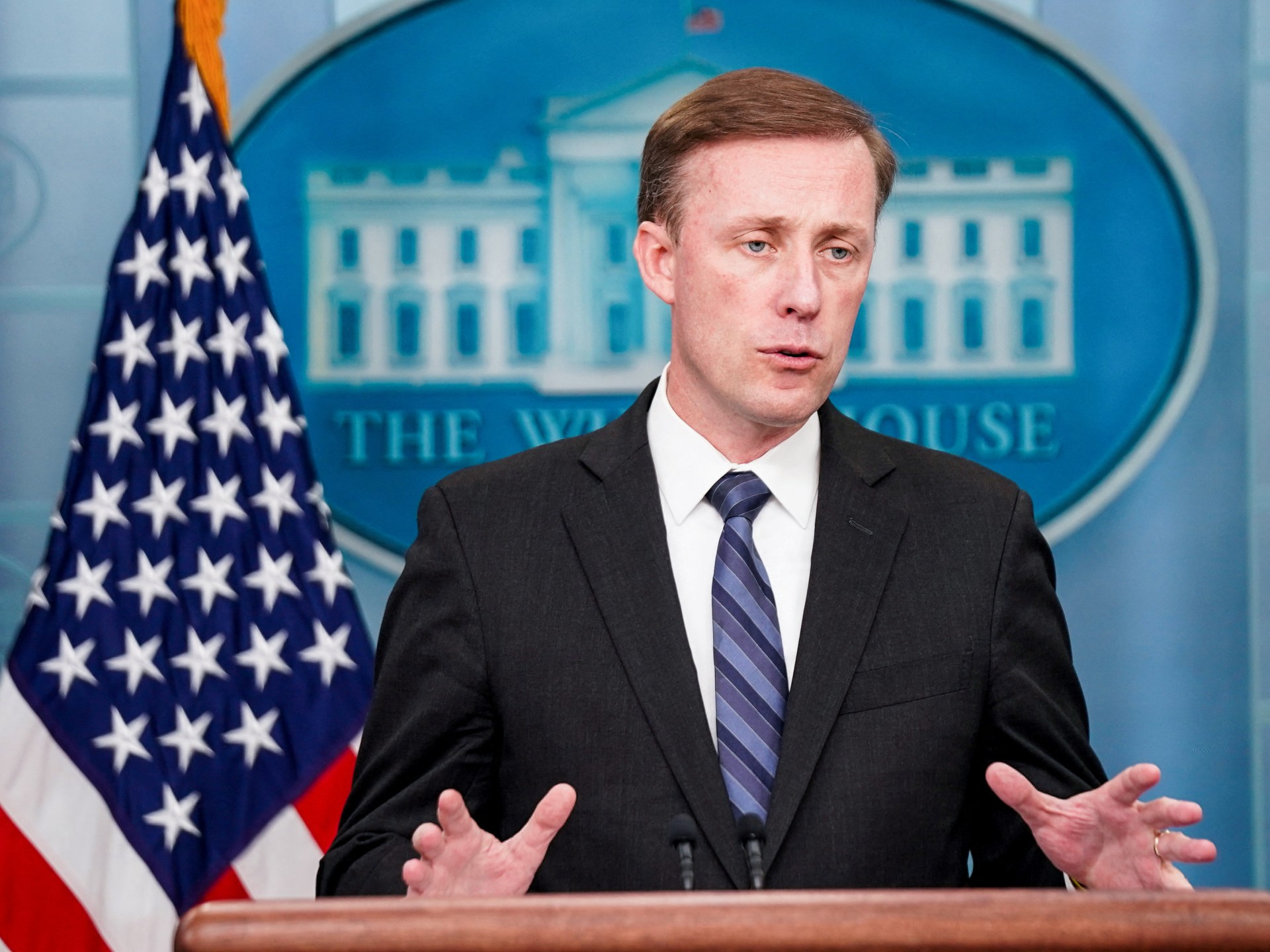Constant discussions aim to ensure a ‘stable and affordable supply of energy to global markets’, White House official says.
The United States is “in regular contact at senior levels with Saudi Arabia about ensuring a stable and affordable supply of energy to global markets”, National Security Advisor Jake Sullivan says.
The statement on Friday follows International Energy Agency (IEA) estimates announced that oil output cuts – which Saudi Arabia and Russia extended to the end of 2023 – will result in a substantial market deficit through the fourth quarter this year because of high demand.
Sullivan confirmed to reporters at a White House briefing that US President Joe Biden had a “brief exchange” with Saudi Crown Prince Mohammed bin Salman at the Group of 20 (G20) summit in New Delhi earlier in September.
The main topic of that discussion was the announcement of a new economic corridor that would link India, the Middle East and Europe via rail and sea, he said.

‘Significant supply shortfall’
OPEC and its allies, known as OPEC+, began limiting supplies in 2022 to bolster the energy market.
The Saudi-led oil-producing group pumps about 40 percent of the world’s crude oil meaning its policy decisions can have a major effect on oil prices.
This month, benchmark Brent crude breached $90 a barrel for the first time this year after OPEC+ leaders Saudi Arabia and Russia extended their combined 1.3 million barrel per day (bpd) cuts until the end of 2023.
Output curbs by OPEC+ members of more than 2.5 million bpd since the start of 2023 have so far been offset by higher supplies from producers outside the alliance, including the US, Brazil and still under-sanctions Iran, the IEA said.
“But from September onwards, the loss of OPEC+ production … will drive a significant supply shortfall through the fourth quarter,” it said in its monthly oil report.
However, the lack of cuts at the start of next year would shift the balance to a surplus, the agency said, highlighting stocks will be at uncomfortably low levels, increasing the risk of another surge in volatility in a fragile economic environment.
